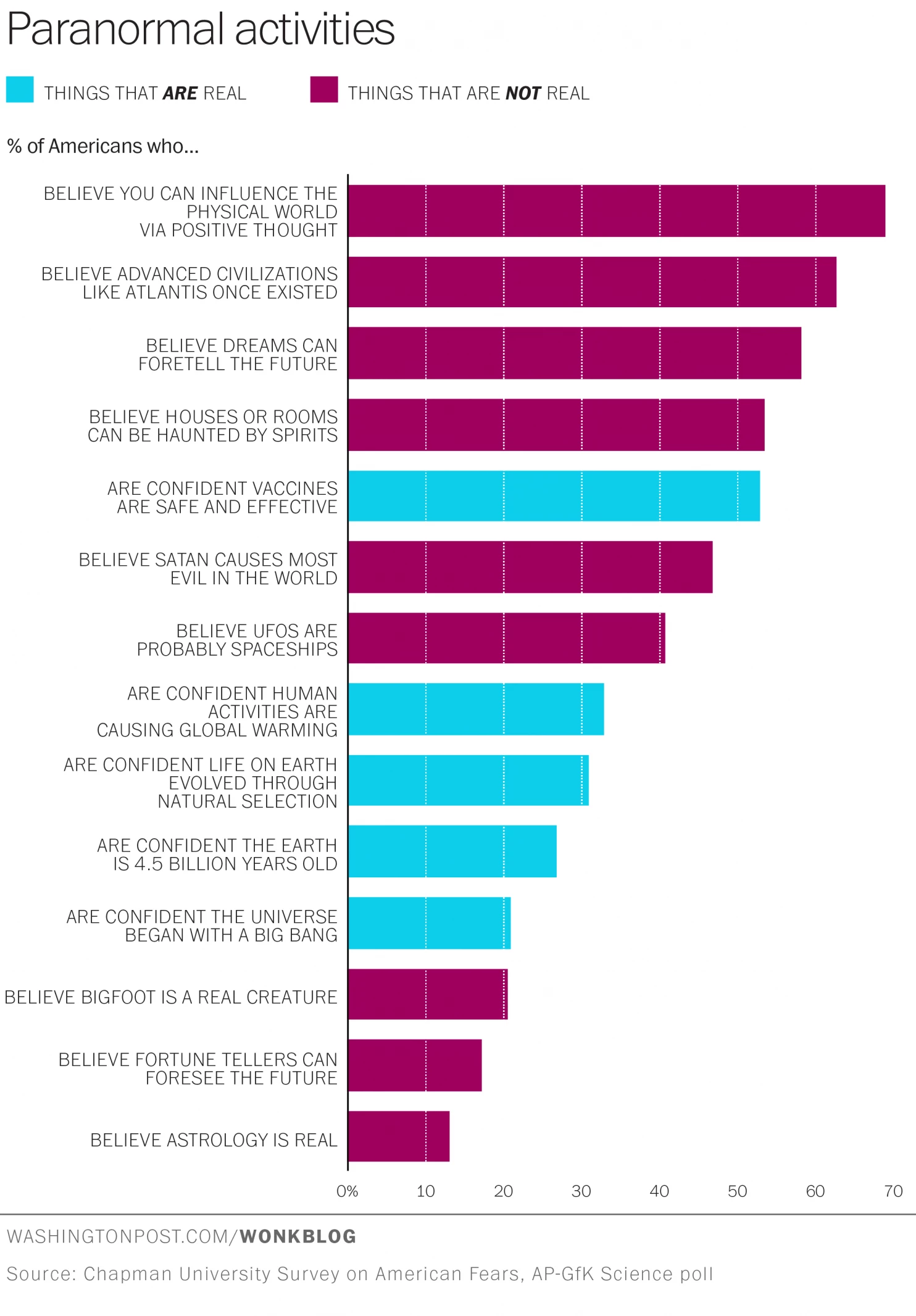A recent IO9 article indicated that more people in Britain believe in ghosts and aliens than in God. IO9 also highlighted a science experiment that might offer an explanation of why people see/feel ghosts (which Smithsonian also reported on), talked about spirituality and pseudoscience in science fiction, and shared an infographic of misconceptions which are widespread, and which include both religious and non-religious erroneous views. A post at Atheist Revolution talked about ancient aliens ideas as a “secular God of the gaps.” The Washington Post had a piece about widespread views that most critical thinkers and skeptics would say have little or no supporting evidence, including religious ones but also things like Bigfoot and astrology.
As several atheist bloggers have noted, sometimes even specifically religious beliefs – ones that seem incompatible with atheism – are held by atheists. But even if such anomalies are excluded, there is clear evidence that atheists can fall prey to conspiracy theories, pseudoscience, and pseudohistory.
This is important to mention, because there are those who speak as though atheism is equivalent to skepticism and critical thinking. But the two are not the same. A Deist who is skeptical of miracles is probably more of a skeptic than an atheist who thinks that aliens sometimes cause them. And a pantheist who believes that positive thoughts have a real impact on people’s lives is probably no less of a critical thinker than an atheist who thinks the same.
Facile identifications between one’s own preferred ideology and “critical thinking,” “intelligence,” or “skepticism” are an indication that one has fallen victim to shoddy thinking, rather than evidence of having avoided it. Even among young-earth creationists, while its proponents are demonstrably wrong, it is not the case that all people who hold to that view are stupid or insane. I am better informed now than I was as a teen, and hope that I have better honed my skills in critical thinking and information literacy. But I am not persuaded that my transition from being a young-earth creationist to recognizing that as a pseudoscientific hoax was a transition from stupidity to smartness or from insanity to sanity.













